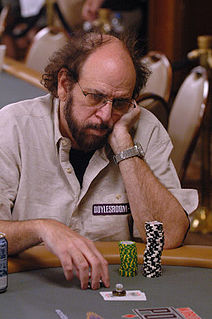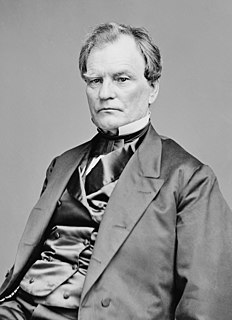A Quote by Patrick Henry
Related Quotes
Kant does not think there is anything wrong with being beneficent from sympathy. He thinks we have a duty to cultivate sympathetic feelings by participating in the situations of others and acquiring an understanding of them. He thinks we also have a duty to make ourselves into the kind of person for whom the recognition that something is our duty would be a sufficient incentive to do it (if no other incentives were available to us). That's what he means by "the duty to act from the motive of duty".
IF WE AND OUR POSTERITY SHALL BE TRUE TO THE CHRISTIAN RELIGION, IF WE AND THEY SHALL LIVE ALWAYS IN THE FEAR OF GOD AND SHALL RESPECT HIS COMMANDMENTS, IF WE AND THEY SHALL MAINTAIN JUST MORAL SENTIMENTS AND SUCH CONSCIENTIOUS CONVICTIONS OF DUTY AS SHALL CONTROL THE HEART AND LIFE, WE MAY HAVE THE HIGHEST HOPES OF THE FUTURE FORTUNES OF OUR COUNTRY. OUR COUNTRY WILL GO ON PROSPERING.
Let the first act of every morning be to make the following resolve for the day: - I shall not fear anyone on Earth. - I shall fear only God. - I shall not bear ill will toward anyone. - I shall not submit to injustice from anyone. - I shall conquer untruth by truth. And in resisting untruth, I shall put up with all suffering.
You're always on duty because you're in a constant state of observation. That's one of the challenges of being a comedian. I think one of the other challenges is that, whether we like it or not, it's a profession that requires failure. It doesn't just encourage failure. It requires it because it's all trial and error. You need to know what doesn't work to know what works.
We Aryans are those of European descent who are racially conscious and who have committed our lives to our people's survival and evolutionary advancement. We shall do our duty. We shall not surrender our freedom and our very existence to Jewish or any other power. We shall preserve our heritage and our hard-won rights and freedoms. We shall guide our people up the evolutionary stairway to the stars.
No person shall be restrained of his liberty but by regular process from a court of justice, authorized by a general law. . . . On complaint of an unlawful imprisonment to any judge whatsoever, he shall have the prisoner immediately brought before him and shall discharge him if his imprisonment be unlawful. The officer in whose custody the prisoner is shall obey the order of the judge, and both judge and officer shall be responsible civilly and criminally for a failure of duty herein.


































